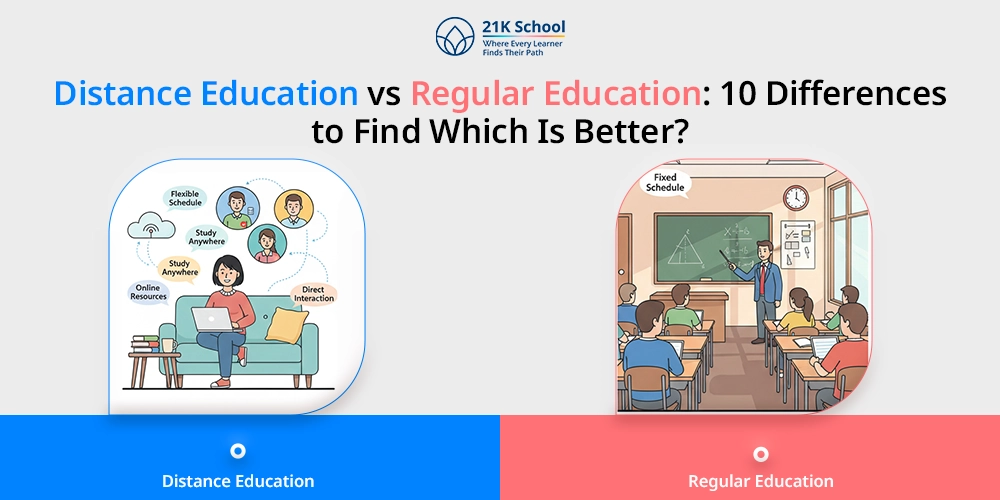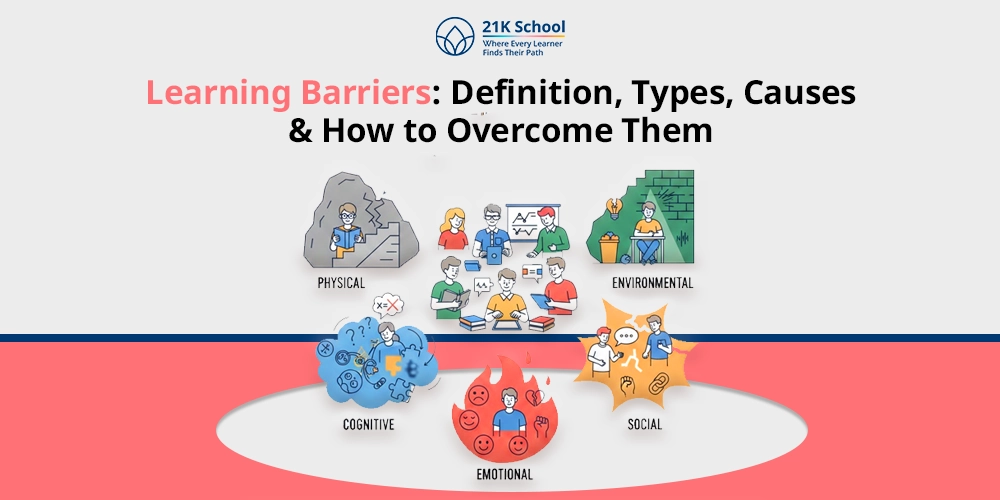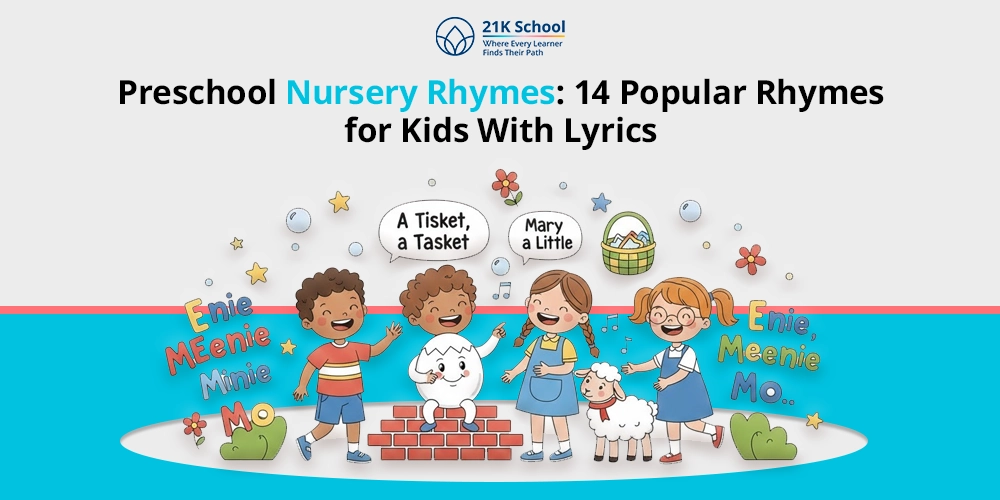
Since everything is going to digital space, children must be prepared for such a world where they do not face any difficulty while moving in the digitally backed world.
One of the most effective methods is to adopt the online schooling system. Further, this virtual schools approach has had a positive impact on students in several places including the Middle East.
Besides, this mode of education is not only directed to children for the coming future but also includes a number of advantages that would make this type of education attractive to families.
In this blog, we will discuss the possibilities that led to the success of virtual schools in the Middle East, why they are popular, and the list of homeschooling/online schooling benefits.
Table of Contents
- The Rise of Virtual Schools in the Middle East
- Problems with Traditional Schooling
- Advantages of Homeschooling/Virtual School
- Key Success Factors of Virtual Schools in the Middle East
- Challenges Faced by Virtual Schools
- 21K School – Leading Virtual School in the Middle East
- Future of Virtual Schools in the Middle East
- Conclusion
The Rise of Virtual Schools in the Middle East
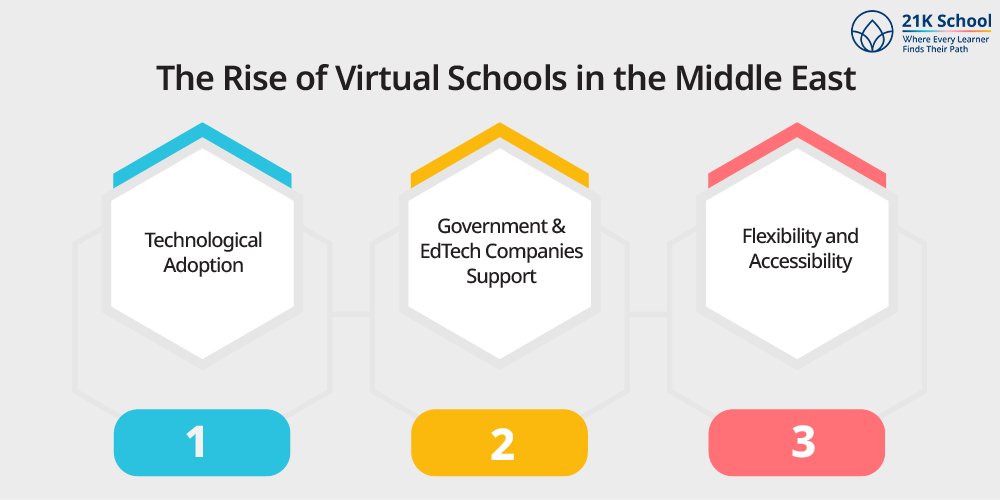
The Middle East has become one of the regions that are most advanced in their use of virtual schooling mainly because of the high technological readiness.
Many of the countries in the region are at the forefront of internet usage and own the most number of smartphones hence students can access the online classes easily.
This access, coupled with increased awareness and acceptance of online education has contributed to the rise of virtual schools in the region.
1. Technological Adoption
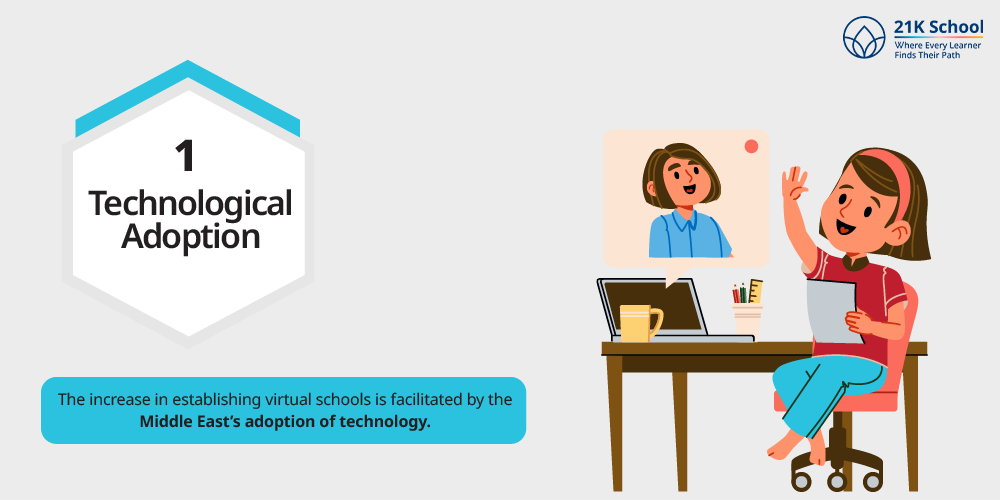
The increase in establishing virtual schools is facilitated by the Middle East’s adoption of technology.
Given that there is access to the fast internet and almost everyone uses a smartphone, the student has equal opportunities to attend classes in an online format.
In the Middle East, students can access virtual classes through the use of Mobile devices, laptops, and tablets, education has become more accessible as compared to the past.
2. Government & EdTech Companies Support
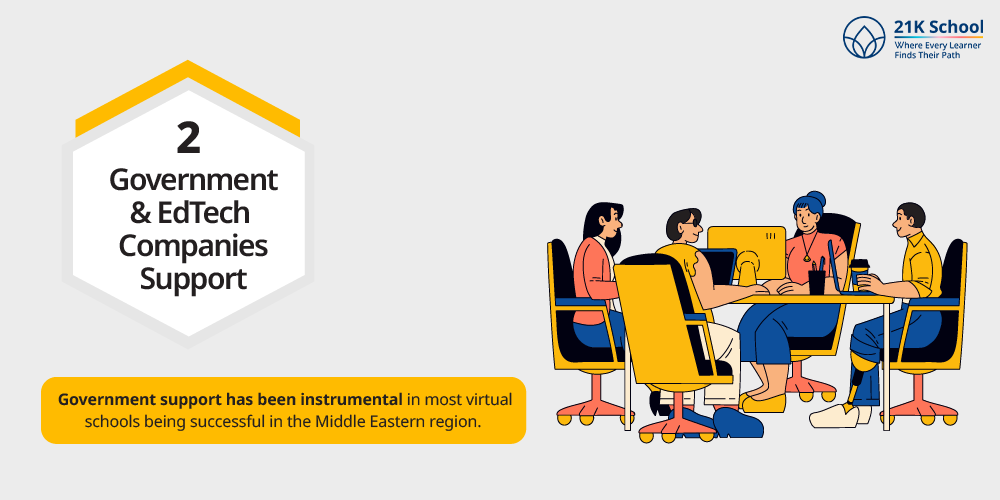
Government support has been instrumental in most virtual schools being successful in the Middle Eastern region. Globally, countries such as the UAE, Saudi Arabia, and Qatar have operational large-scale initiatives on Digital Education.
It also affirms that it is possible to school online while at the same time making sure that the students can cover all the required academic content.
The government has set up policies and endowed funding for virtual education so that students can be provided with quality education with strong roots. Here’s how governments are contributing to this rise:
- Investing in Digital Infrastructure:
Middle Eastern governments are investing heavily in digital learning platforms, and educational technology as well as expanding internet connection for delivery of online education to the mass number of students.
- Policy Adjustments to Encourage Online Learning:
Education ministries are endorsing the use of policies and rewards as a way of supporting the use of technology within learning institutions as a way of enhancing online learning.
- Collaborations with EdTech Companies:
Governments are forging partnerships with ed-tech start-ups and encouraging innovation of products and services that they believe can respond to the needs of students throughout the Middle East for a more pleasant online learning experience.
Also, read- Online Learning: What Is It And How Does It Work?
3. Flexibility and Accessibility
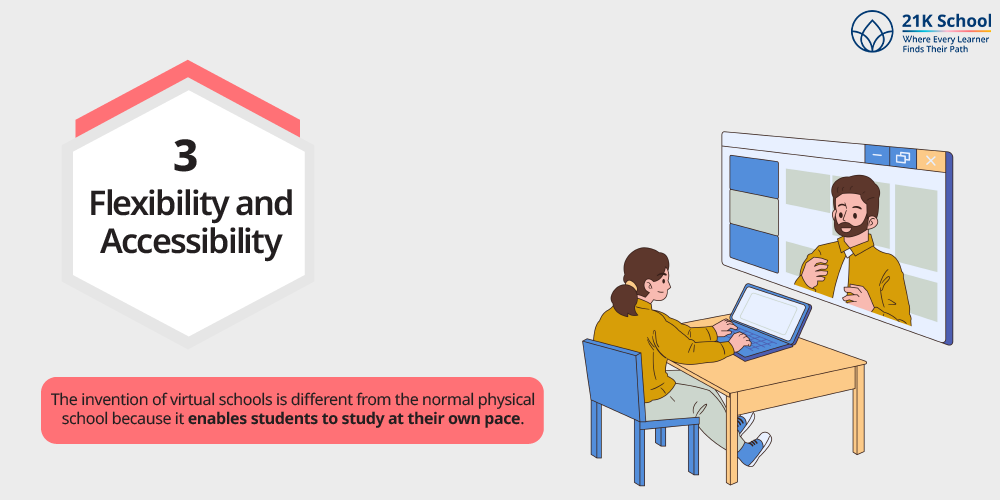
This is another factor that has made virtual schools and colleges credible in Middle Eastern countries due to the flexibility of the programme.
The invention of virtual schools is different from the normal physical school because it enables students to study at their own pace.
You can access course material online hence the students get the opportunity to prepare as per their timetable. This would be especially beneficial for students who may have other tasks and responsibilities such as work or family responsibilities.
It also helps students practise in different time zones because you can take lessons and submit an assignment from anywhere in the world that is convenient for you.
Further, with virtual school students can get a large number of different courses and programs, which is why this way of learning is preferable to the traditional one.
This helps students select areas they completely focus on or pursue throughout their further studies and careers in STEM, arts, and humanities.
Also, read: 5 reasons to choose online schooling for ex-pats living in the Middle East
Problems with Traditional Schooling
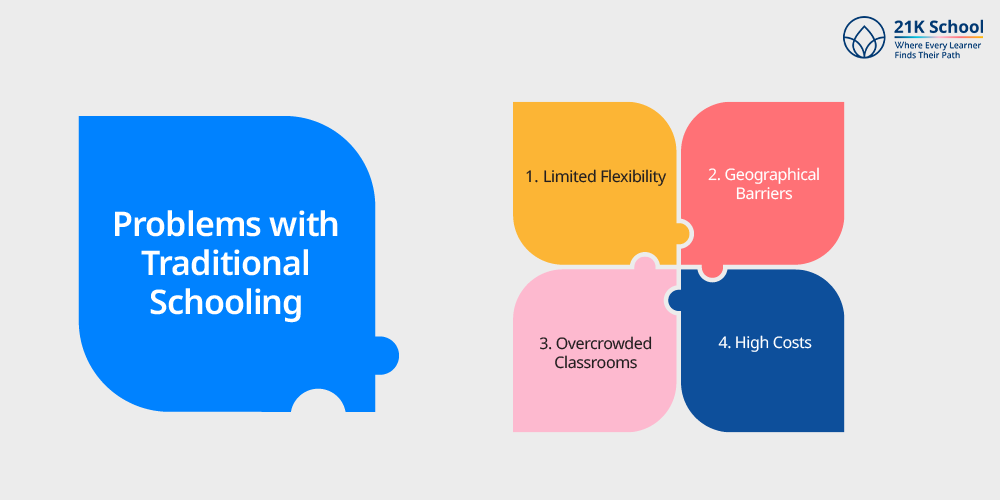
While traditional schooling has its merits, several challenges make virtual schooling a more attractive option for many families:
- Limited Flexibility: Traditional schools have set timetables hence they are rigid and thus not suitable for students who have other engagements or other special learning requirements.
- Geographical Barriers: The availability of education has also been a problem due to geography whereby regionality of education has been a problem for students as they sometimes can’t attend top-class school.
- Overcrowded Classrooms: Traditional schools also present some difficulties such as classes that are overfilled and that is why most of the teachers cannot spend much time together with learners; therefore, there is little interaction.
- High Costs: A lot of expenses such as transportation, school uniforms as well as books make it less affordable for some families.
By looking at these challenges, we can understand why online schools are getting more effective solutions and becoming popular in Middle Eastern countries.
Advantages of Homeschooling/Virtual School
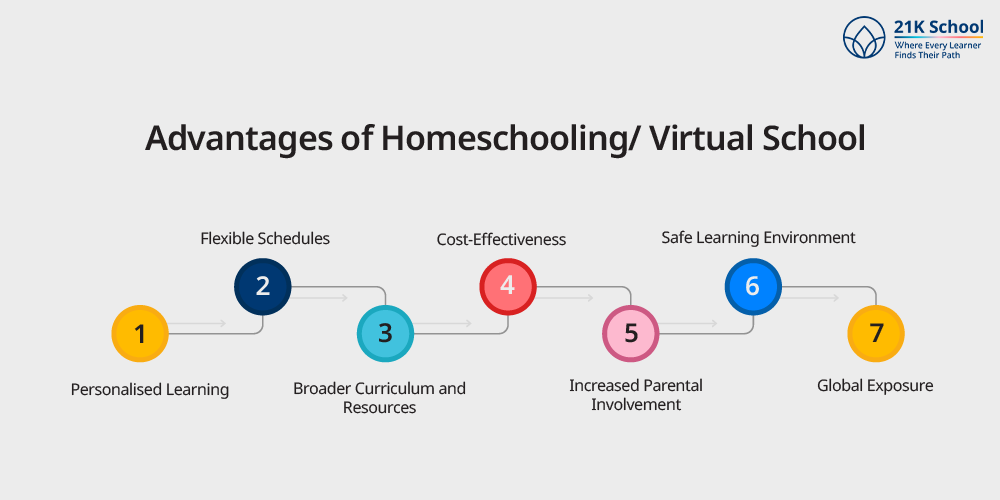
We all have seen that virtual school is gaining more and more popularity globally, especially in countries of the Middle East.
Below are some of the major advantages or factors that make these educational models popular among parents and students.
1. Personalised Learning
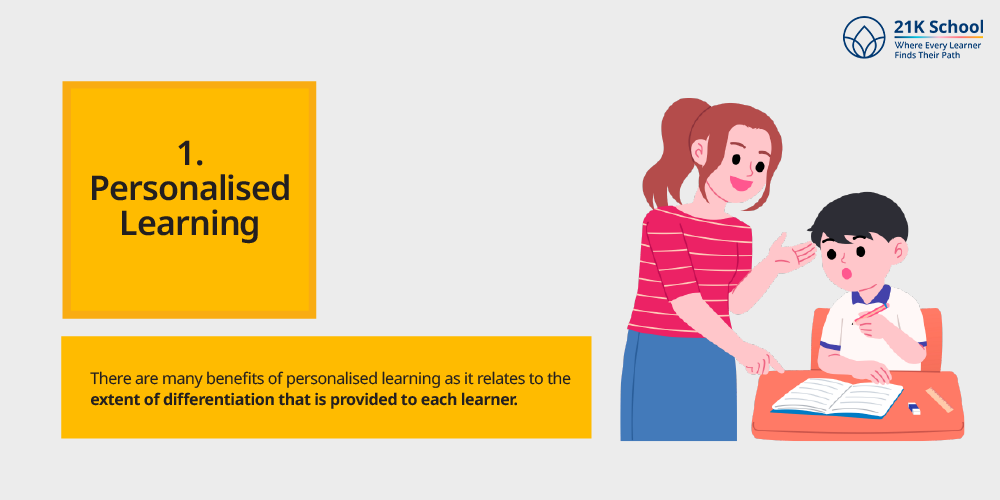
There are many benefits of personalised learning as it relates to the extent of differentiation that is provided to each learner.
Learners are always supposed to learn in groups in normal learning environments, and most trainers or instructors barely bother to consider each learner separately.
Virtual schools allow the student to control the speed at which he or she masters concepts and the topic that he or she needs to be corrected on.
By leveraging the current learning technologies, the trainers could deliver material targeted at the learning style Proficiency, strengths, and challenges of each learner.
2. Flexible Schedules
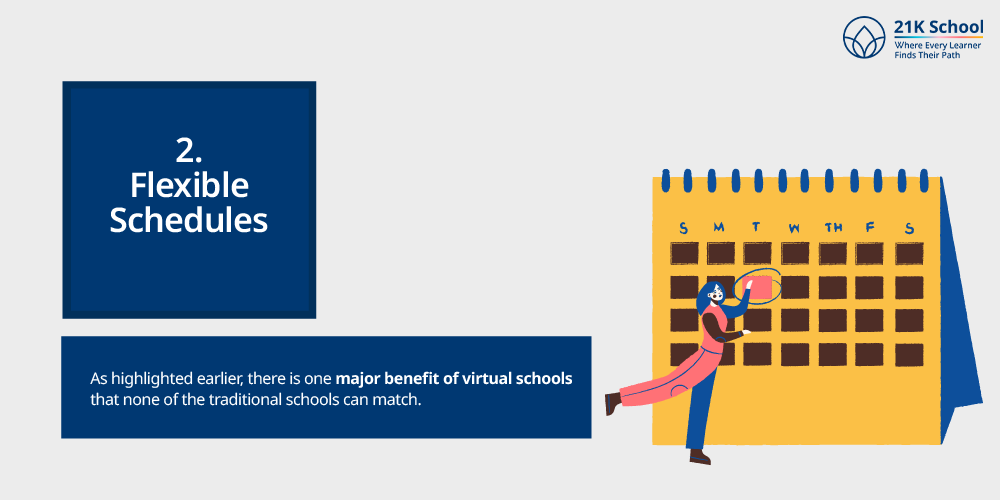
As highlighted earlier, there is one major benefit of virtual schools that none of the traditional schools can match.
It is convenient for distant students because they can access the course contents and lectures at their convenience and thus will not interfere with other aspects of life.
This also applies well to students because students can also participate in other activities such as sports, and other extracurricular activities, or even secure an internship while at school.
3. Broader Curriculum and Resources
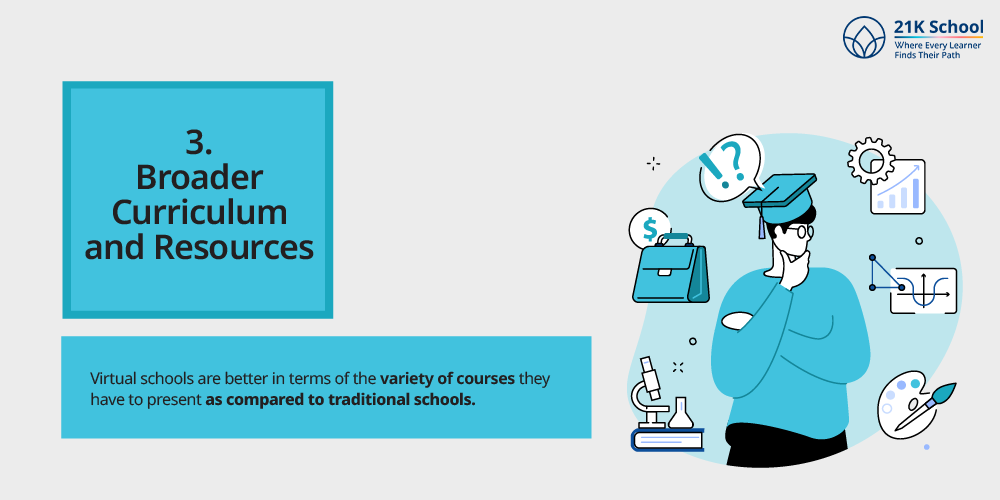
Virtual schools are better in terms of the variety of courses they have to present as compared to traditional schools.
This broad curriculum helps the students to proceed to more depth of specific subjects or vocation-based courses in their area of interest.
Online education platforms also provide an immense amount of information and resources to the students in the form of video lectures, e-books, simulations, or other interactive tools that help strengthen the concepts that have been delivered or taught.
4. Cost-Effectiveness
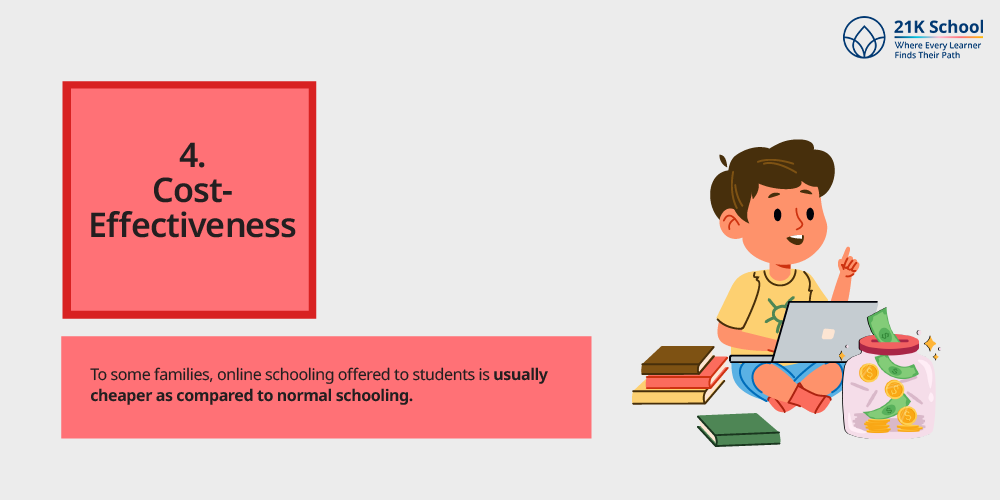
To some families, online schooling offered to students is usually cheaper as compared to normal schooling.
Virtual schools eliminate some of the most expensive factors relating to physical schools such as transport, school uniforms, etc.
Also, the use of family-based requires less money to be spent on educational materials and or resources as compared to centre-based.
Also, read- Homeschooling on a Budget: Cost-Saving Tips
5. Increased Parental Involvement
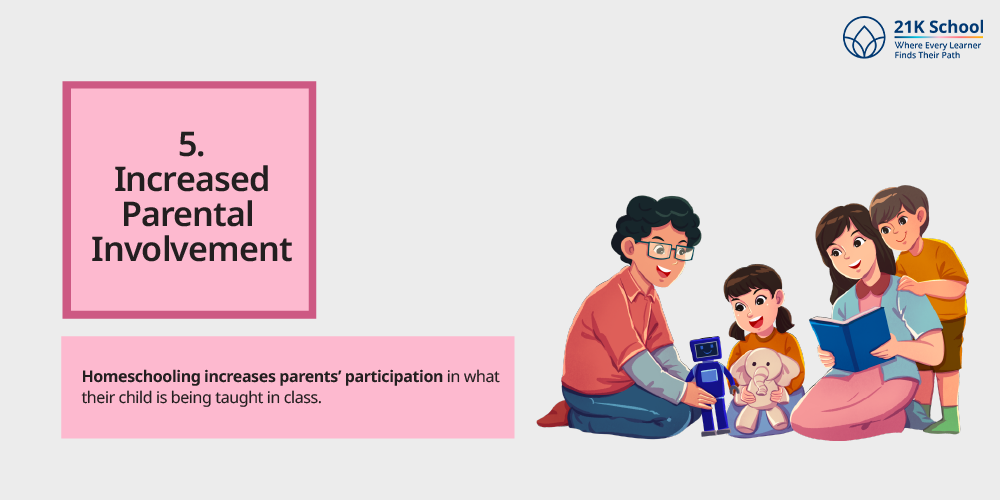
Homeschooling increases parents’ participation in what their child is being taught in class.
It is also flexible to allow parents to be actively involved in the progress and handling of their children as they may set objectives, create homeschooling schedule, goals and offer directions whenever necessary.
Such increased participation results not only in the improvement of the learning process and the student’s achievements but also in strengthening the parent-child bond.
6. Safe Learning Environment
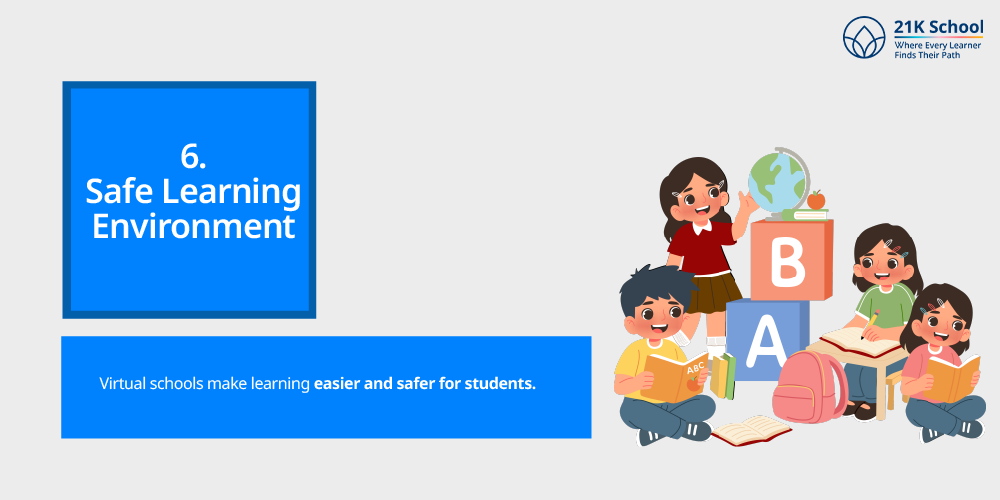
Virtual schools make learning easier and safer for students. This factor alone has made many parents turn to home-based distance learning due to wrong acts exhibited in school bullying, and peer pressure among students.
This reduces the chances of having numerous interferences from other students and allows the concentration of individual learners to be fully focused on learning activities.
7. Global Exposure
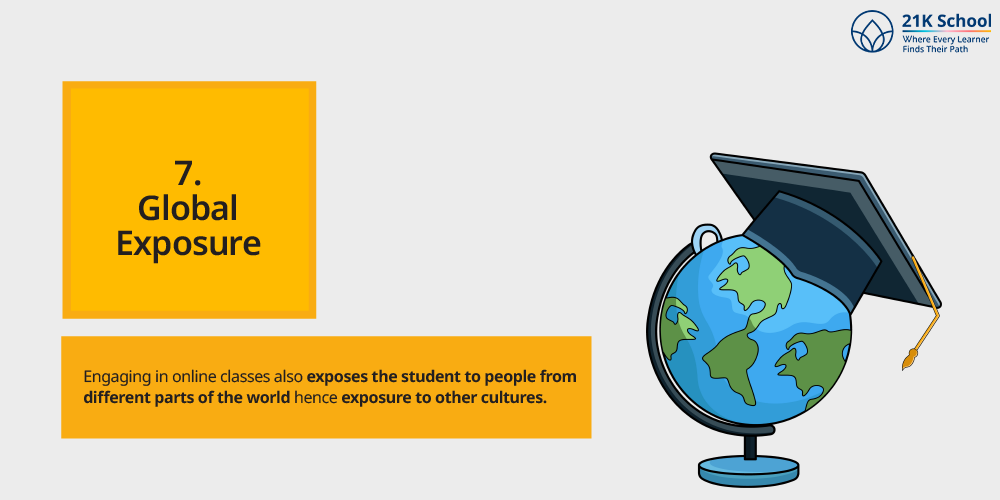
Engaging in online classes also exposes the student to people from different parts of the world hence exposure to other cultures.
Global exposure also increases the students’ awareness and broadens their perspective in their surroundings thus making them adjust to the different cultures in today’s complex society, which in return enhances their ability to interact with other individuals from various parts of the world.
Key Success Factors of Virtual Schools in the Middle East
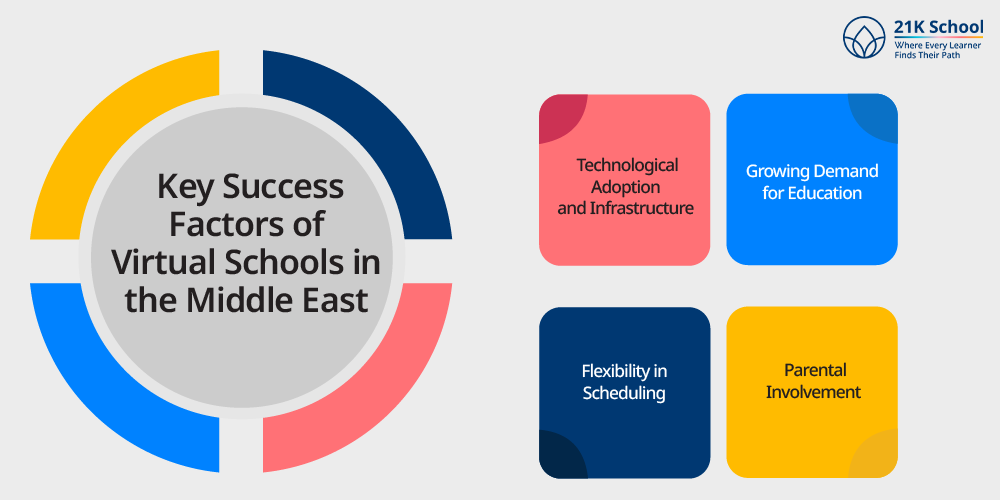
With time adapting, virtual schools can be the best choice for students’ success in learning. The rapid growing virtual education in the Middle East is making a difference.
Key factors for virtual school in the Middle East involve increasing internet penetration, a digitally savvy population, government investment in technology, and flexible learning options.
Let’s understand each point in detail:
1. Technological Adoption and Infrastructure
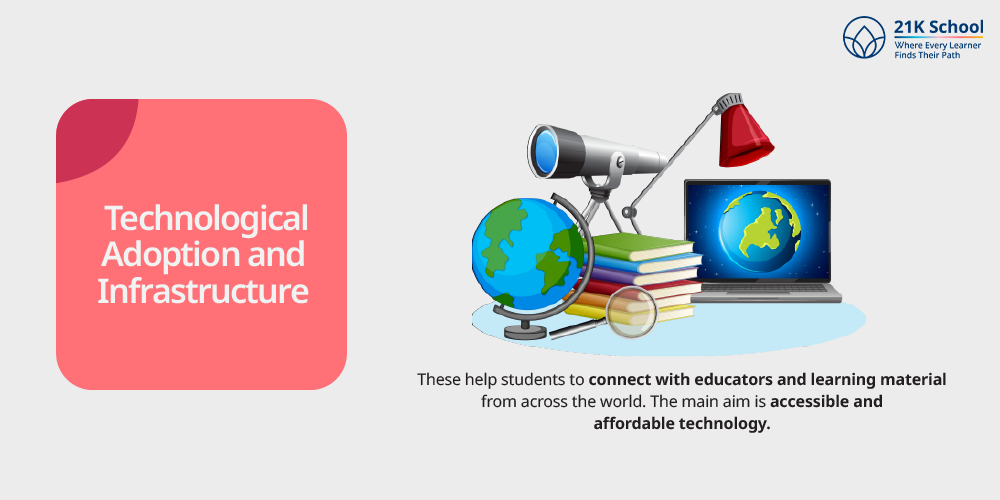
Over the past decades Middle East virtual schools include robust digital infrastructure, government investment in EdTech, and a growing digital literacy among students and educators.
These help students to connect with educators and learning material from across the world. The main aim is accessible and affordable technology.
To make this happen, the government is also taking initiative for digital literacy which makes online learning comfortable for everyone. Know more about the advantages of online learning.
2. Growing Demand for Education
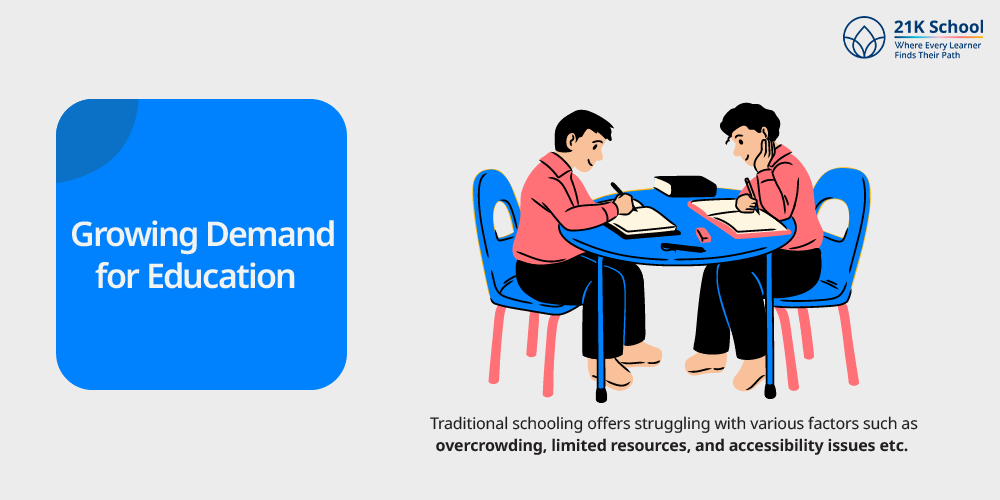
Traditional schooling offers struggling with various factors such as overcrowding, limited resources, and accessibility issues etc.
Virtual School offers practical solutions for bridging the gap in education. Whether it’s for expatriate families, nomadic learners, or students in remote regions, online learning ensures high quality education.
3. Flexibility in Scheduling
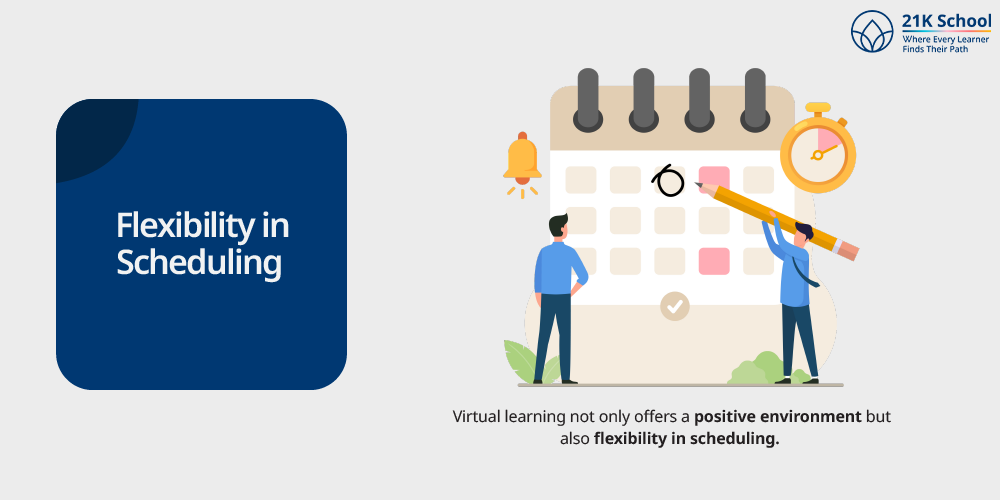
Virtual learning not only offers a positive environment but also flexibility in scheduling. This virtual schools flexibility ensures that students get enough time and pace.
This can help in balancing students’ virtual school life and commitment towards other activities.
4. Parental Involvement
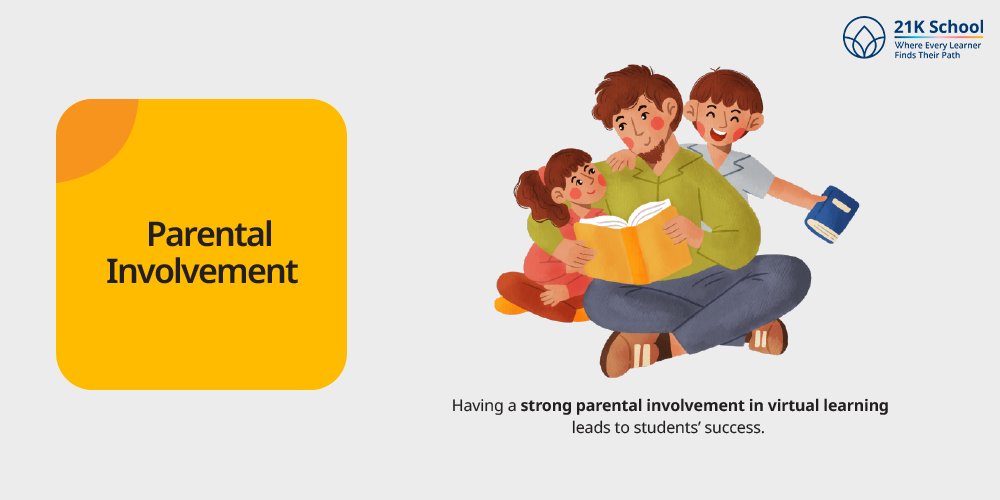
Having a strong parental involvement in virtual learning leads to students’ success. By assistant monitoring and analyzing parents can get updates on what is going on.
Parents can create a good environment for their kids which leads to collaboration, communication and connection without any hurdles.
Challenges Faced by Virtual Schools
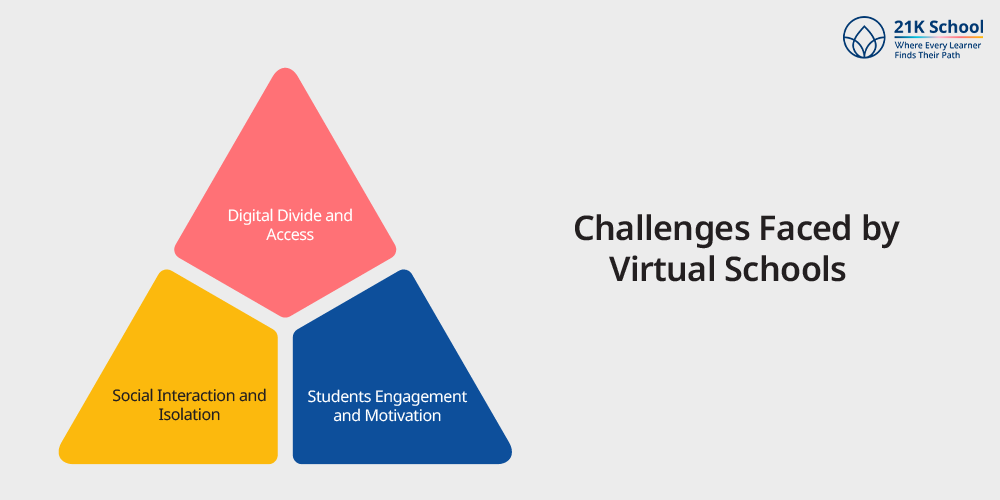
There are numerous challenges faced by students with virtual schools. However, understanding these challenges help teacher students and parents to overcome the situation.
Following are some of the challenges you must know:
1. Digital Divide and Access
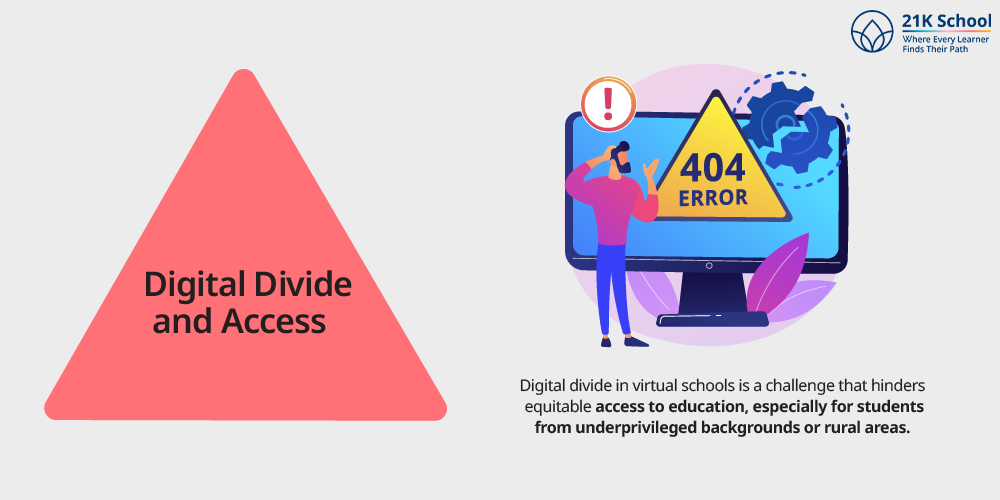
Digital divide in virtual schools is a challenge that hinders equitable access to education, especially for students from underprivileged backgrounds or rural areas.
The main problem is lack of reliable internet access, devices, and digital literacy skills creates disparities in online learning opportunities.
2. Social Interaction and Isolation
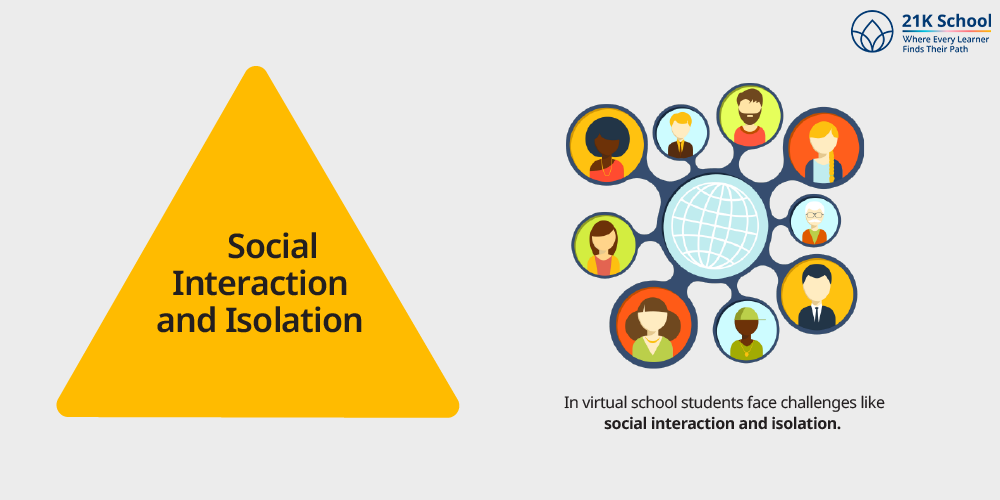
In virtual school students face challenges like social interaction and isolation. This means lack of in-person meetings can lead to feelings of loneliness, reduced motivation, and difficulties in building relationships.
This can impact students’ academic performance, engagement and interest in participating in different activities.
3. Students Engagement and Motivation
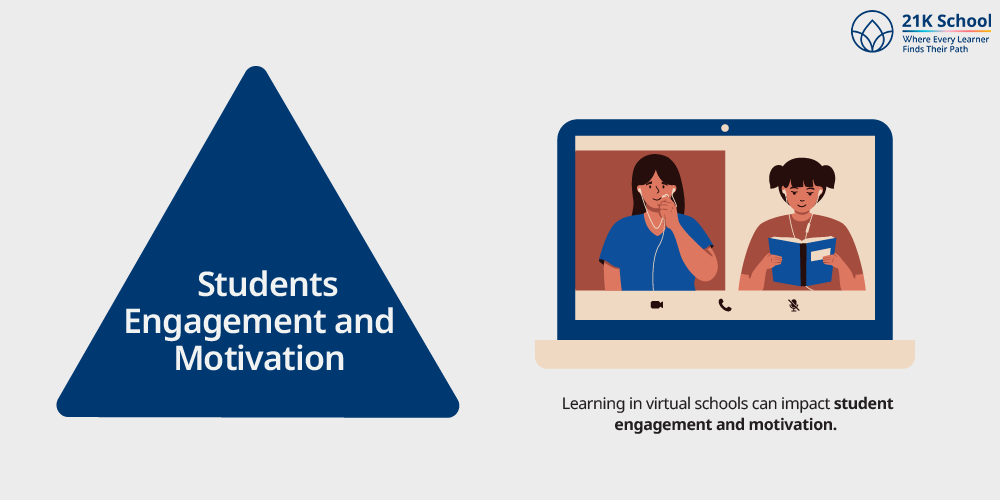
Learning in virtual schools can impact student engagement and motivation. This happens due to lack of student-to-student interaction, distractions in the home environment, and the difficulty of fostering a sense of community.
Virtual education, constant innovation and new activities which can engage students’ interest in learning. Teachers can use games, quizzes etc.
21K School – Leading Virtual School in the Middle East
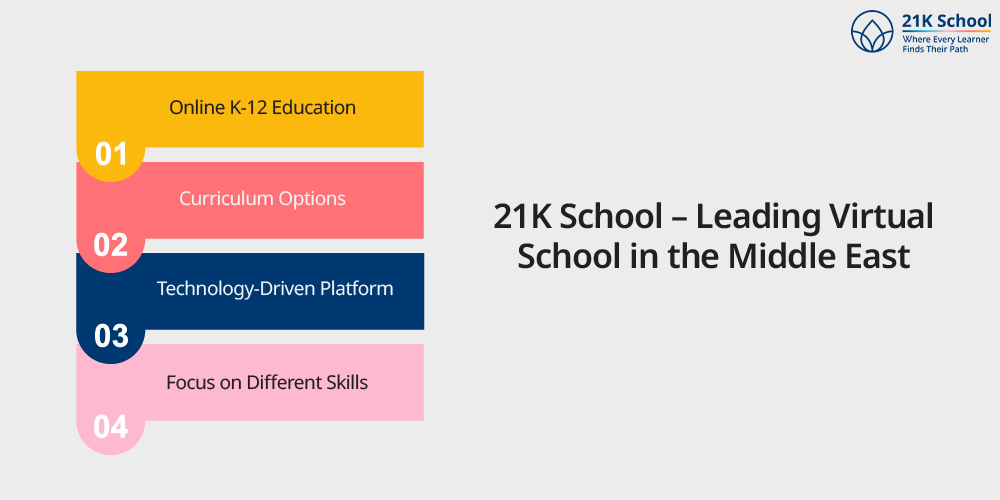
21K School is a leading online K-12 institution offering virtual education to students worldwide, including in the Middle East.
Among a lot of education platforms 21K school has become the leader of the online learning ecosystem in the Middle East.
The 21K school mission is to provide refined education for students to improve their academic performance.
21K school offers:
1. Online K-12 Education
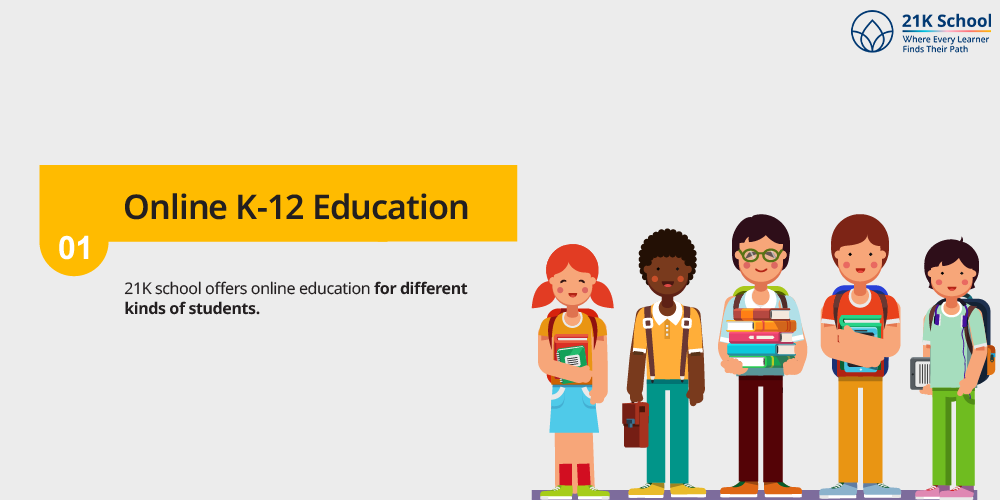
21K school offers online education for different kinds of students. From general education to special education for disabled kids.
Reach our 21K school website to know how to enroll in homeschooling or virtual education.
2. Curriculum Options
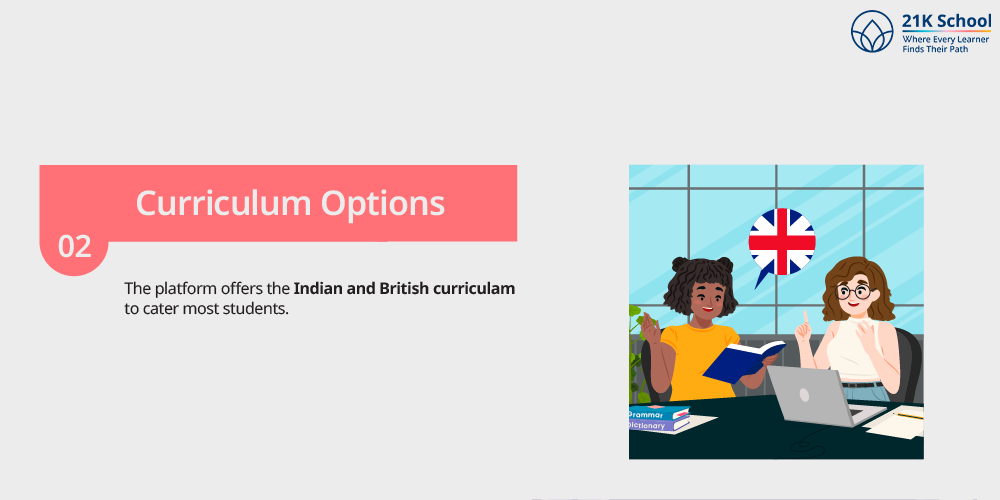
The platform offers the Indian and British curricula to cater most students. 21K school also provides customized curriculum options especially for special needs students.
3. Technology-Driven Platform
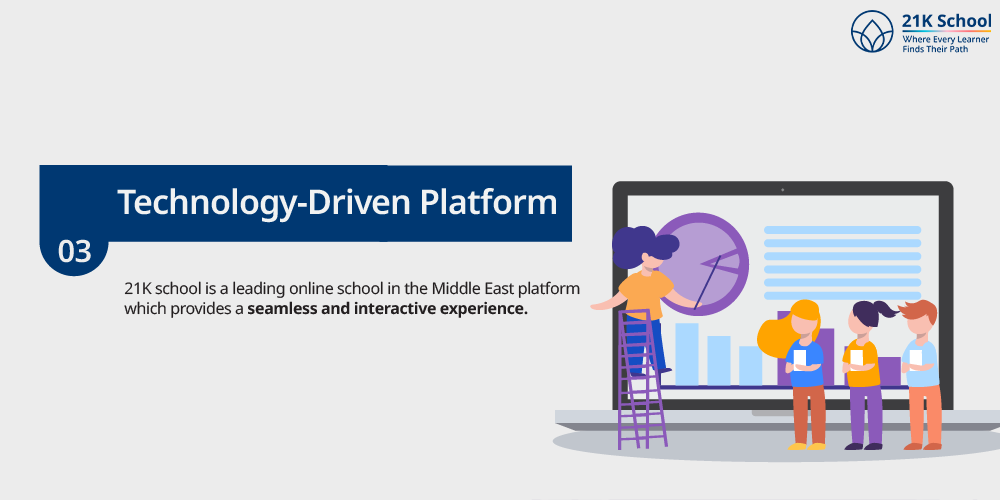
21K school is a leading online school in the Middle East platform which provides a seamless and interactive experience.
The platform offers support such as progress tracking, on-demand access to materials, interactive tools and many more.
4. Focus on Different Skills
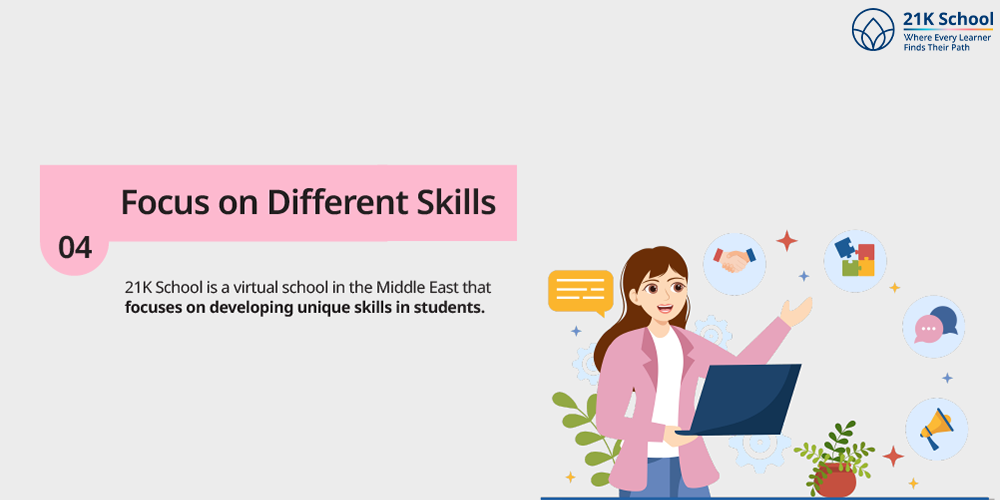
21K School is a virtual school in the Middle East that focuses on developing unique skills in students.
The importance of online learning motivates different kinds of skills. Skills such as creativity skills, critical thinking skills, and social-emotional skills in today’s world.
Future of Virtual Schools in the Middle East
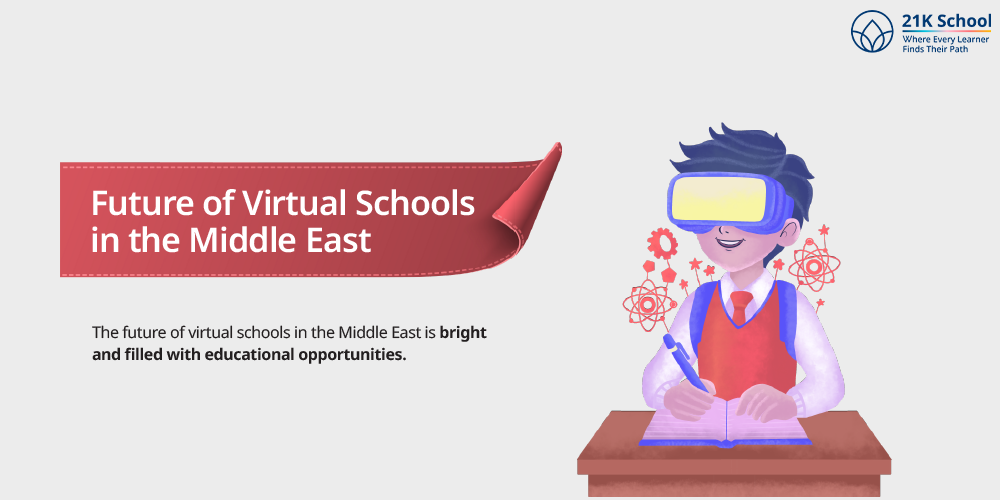
The future of virtual schools in the Middle East is bright and filled with educational opportunities. Virtual schools promise to fulfill students’ needs without stepping out or any hurdle.
The future innovations in virtual education collaborate to make learning more engaging, effective, and designed for students, turning education into a highly personalized experience.
With growing internet penetration, a burgeoning EdTech market, and a demand for flexible and affordable learning solutions.
Here you can look the points in more detail:
- Growth of EdTech Market
The rapid expansion or growth of the EdTech market in the Middle East plays a crucial role in virtual education.
From AI-based virtual learning platforms to VR-enabled classrooms, the enhancement guides students towards innovation.
The growth helps in transforming students’ experience as well as opportunity in the job market.
- Government Initiatives
Government initiative crucial for virtual education in the Middle East. These initiatives focused on investing in and promoting virtual schools and online education.
With the help of technological advancements, increased accessibility, and a focus on personalized learning and flexible schedules, virtual learning in the Middle East is booming.
The goal is to ensure that future generations get all the required learning tools together.
- Increased Online Student Enrollments
With time and advancement increasing online students enrollments are going upward. From Kindergarten to high school students are each excited to opt for virtual education in middle school.
It is an ideal choice for the Middle East due to its flexibility, inclusivity, and global reach. This shift changed the scenario of the education system by expanding online learning options.
- AI and VR Integration
Emerging technologies such as AI and VR integration is a blessing for virtual schools in the Middle East. These technologies make learning interesting.
Now students can explore many things at home from 3D models to science experiments. This will help students in lesson and real life practice based education.
Together, AI and VR make learning more exciting in virtual schools in the Middle East. Know more about innovative ideas in a virtual classroom for students.
Conclusion
This information on the effectiveness of virtual schools in Middle Eastern countries implies the willingness of the region to embrace progressive forms of education provision.
With high support from different ministries of education, high technological uptake, and other approaches to learning, virtual schools are helping students achieve their potential in the digital space.
As we continue to witness the expansion of online schooling, it is clear that personalised learning and technology will play an increasingly prominent role in shaping the future of education.

